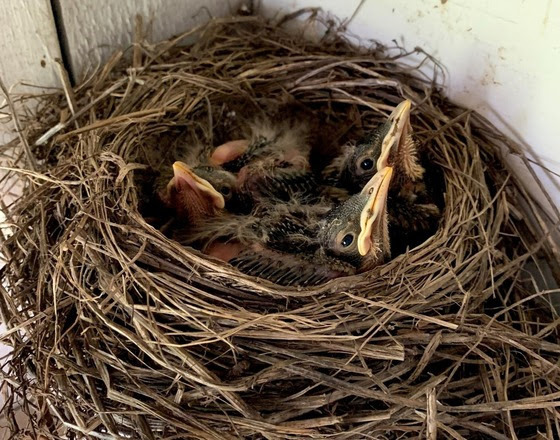DNR Reminds Residents to Keep Wildlife Wild
Friday, August 8th, 2025 -- 8:00 AM

The Wisconsin Department of Natural Resources (DNR) reminds the public to protect young wildlife by observing them from a safe distance and letting them grow up in their natural environment.
“Many of Wisconsin’s native wildlife species, such as rabbits, squirrels, opossums and songbirds, have multiple litters or clutches each year,” said Jenna Fastner, DNR Captive Wildlife Health Specialist.
“While it can be exciting to see a young wild animal, especially in your own backyard, it is important to help protect its safety by letting them learn the behaviors they need to survive in the wild from their parents. Learning how to find food, escape from predators and gain necessary social skills with their own species are all important parts of a young wild animal’s development.”
While young wild animals may seem helpless, they are well-adapted to survive without human intervention. With most species, it is natural for mothers to leave their young alone for long periods of time.
While alone, young animals will often lie quietly and still to avoid attracting predators. As they grow, young wildlife will often wander on their own and, in most cases, do not need intervention.
Here are more reasons to keep wildlife wild:
- Stress: Wild animals view people and domestic animals as predators and are highly stressed by the sights, sounds and smells of being near humans or domestic animals. This stress can cause serious health problems or death.
- Diet: Wild animals have specialized dietary needs that are not easily met in captivity. Inadequate diets put them at a high risk of severe nutritional deficiencies that they may not be able to recover from.
- Habituation: Wild animals must learn normal social behaviors from their own species. Wild animals that learn abnormal behaviors from humans or domestic animals will likely not survive if released.
- Disease: Wild animals carry many diseases and parasites, including some that can spread to domestic animals and humans.
- It’s illegal: Most wild animals are protected under state and federal laws and cannot be taken from the wild or possessed by unauthorized citizens.
Visit the DNR's Keep Wildlife Wild webpage for species-specific information on native Wisconsin wildlife and why it is best to leave them in their natural environment.
Feel free to contact us with questions and/or comments.




